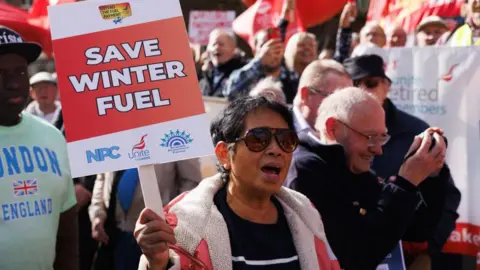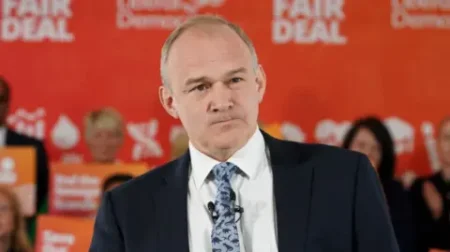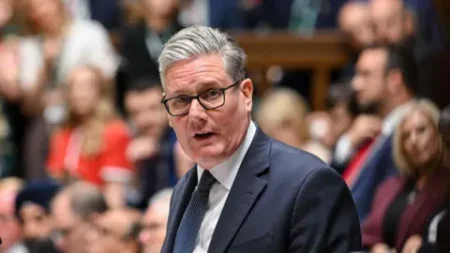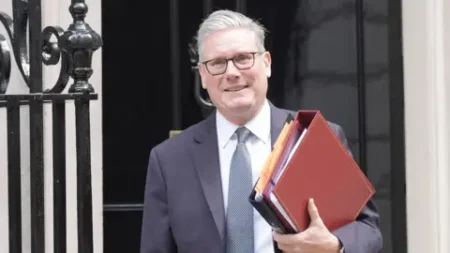In a striking political development, Labour Members of Parliament (MPs) are calling for significant reforms to the benefits system following the government’s recent decision to reconsider winter fuel payments for pensioners. This renewed focus, spurred by a government U-turn, reflects the rising scrutiny faced by ministers and the increasing demand from party backbenchers to address critical social welfare issues.
The government’s recent announcement, which reinstates winter fuel payments for three-quarters of pensioners, has elicited a mixed response from Labour MPs. This move will enable roughly nine million pensioners in England and Wales earning £35,000 or less annually to receive up to £300 to assist with their energy bills during the winter months. The decision to reverse last year’s cut, which drastically limited payment eligibility to those receiving pension credit or other means-tested benefits, has been welcomed. Many Labour MPs expressed gratitude to the government for revisiting this controversial policy, emphasizing fairness in the means-testing process, although they believe the income threshold set last year was insufficient.
However, while Labour MPs celebrated this significant change, they simultaneously urged the government to reconsider cuts to disability payments, as well as to abolish the two-child benefit cap. This cap has prevented families from claiming means-tested benefits for any third or additional children born after April 2017. Critics have highlighted this policy as a driving factor behind increased poverty levels among families. With children at the heart of political and social welfare strategies, Labour campaigners are vocal about lifting this restriction and call for a broader re-examination of how benefits are allocated.
The political climate has shifted considerably in recent months, partly due to the Labour Party’s dismal performance in the local elections held last May. There has been increasing pressure from Labour backbenchers to hold the government accountable for its approach to benefits, especially in light of the significant cuts previously imposed under the pretext of a strained public finances situation. The winter fuel payment scheme was initially expected to save an estimated £1.7 billion but received severe backlash from charities, unions, and opposition parties due to its perceived harshness on pensioners.
The reversal announced by Prime Minister Sir Keir Starmer came after sustained advocacy from Labour MPs, reflecting a shift in strategy to prioritize the needs of vulnerable populations. The Chancellor, in detailing the financial implications of the reinstated payments, indicated that a comprehensive plan outlining how the £1.25 billion allocation would be financed would be revealed in the upcoming autumn Budget. The minister’s comments pointed to an ongoing commitment to reassessing how benefits and welfare support are structured, particularly concerning personal independence payments (PIPs), which will now have a more rigorous assessment approach that could complicate the claims process for those with less severe disabilities.
Among those vocal against cuts to disability allowances was Imran Hussain, MP for Bradford East. He stressed that the government needs to listen more diligently to the concerns being raised in Parliament. Labour MPs such as Nadia Whittome and Richard Burgon voiced similar sentiments, emphasizing that while the winter fuel payment reversal is a step in the right direction, it should not overshadow the government’s responsibilities concerning disability support and child poverty alleviation.
Critically, the narrative around benefits restructuring is multifaceted, encompassing urges from politicians like Rachael Maskell, who has campaigned actively for winter fuel payments. She noted that while the government’s decision was overdue, additional consideration for increased payments is justified in the face of rising energy prices. Her arguments underscored a persistent demand for equitable treatment across different demographics, highlighting that new economic decisions should not penalize one vulnerable group to support another.
The Conservative Party has also weighed in, with Shadow Work and Pensions Secretary Helen Whately labeling the recent U-turn as one of the most embarrassing reversals for any government in its early tenure. She articulated concerns about the lasting implications of this change and reminded the government of the difficult path ahead, as funding remains a significant issue amidst rising demands for social support.
Despite the diverse opinions and pressure mounting from various angles, the overarching goal remains clear: to create a fairer, more supportive benefits system that does not leave the most vulnerable behind. The discussions in Parliament and the public’s growing concern will likely continue to shape the welfare policies that unfold in the coming months, particularly as the government gears up to address these pressing issues in its autumn strategy.











